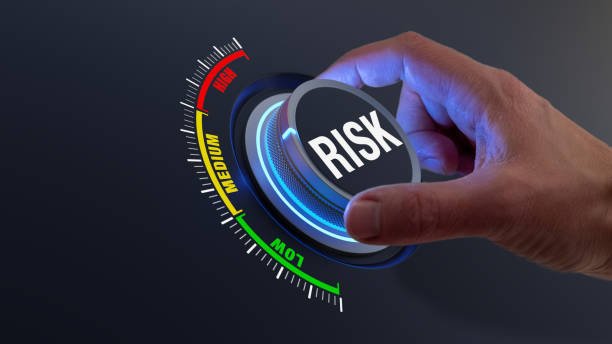A comprehensive guide to risk management
INTRODUCTION
Life involves risk, which has an impact on every choice we make. The idea of risk is fundamental to how our lives are shaped, whether it be in the areas of money, health, business, or daily decisions. We shall explore risk's several aspects in this essay, including what it is, how it can be managed, and how it affects various aspects of our existence.
WHAT IS RISK
Risk is the expectation that an event or activity will have an unfavorable result or deviate from the anticipated outcome. It entails risk, uncertainty, and the possibility of harm or loss. Making informed judgments and reducing negative effects require an understanding of the ability to manage risk.
TYPES OF RISK
Market risk is the possibility of suffering financial loss as a result of changes in the market environment, such as shifts in interest rates or stock prices. Credit risk is the possibility that debtors won't pay back their obligations. Liquidity Risk is the chance of being unable to swiftly turn assets into cash.
Smoking and eating poorly are unhealthy behaviors that might result in long-term health issues. Environmental risk are exposure to poisons, pollutants, and other environmental elements can have an adverse effect on health.
Operational risk is the possibility of suffering a loss as a result of inadequate internal procedures, controls, or human mistake.Risks associated with business decisions, such as entering new markets or launching new goods, are referred to as strategic risks.
RISK MANAGEMENT
Assessing, regulating, and reducing risks are all parts of effective risk management. Risk-management techniques include,'
Risk assessment involves locating and assessing potential dangers. Understanding the possibility and effects of each risk is necessary for this.Risk avoidance is the complete avoidance of decisions or behaviors that pose a significant risk.
Taking measures to lessen the likelihood or impact of risks is known as risk reduction. This could entail reliability, diversity, or safety measures.Risk transfer is the process of transferring risk to a different party through legal agreements or insurance.Accepting risk means recognizing its presence and deciding to live with it, especially when other options are not practical.
IMPACT OF RISK
Financial repercussions: Risk can result in financial loss in the realm of finance. But it's also a crucial component of investment, where greater risks frequently result in greater potential rewards.
Health and wellbeing: Life quality can be impacted by health hazards. Preventive health care management is essential for total wellbeing.
Business Success: Successful and long-lasting enterprises require effective risk management. Risk management mistakes can cause major setbacks.Personal and lifestyle hazards can have an impact on a person's work, relationships, and level of overall life happiness.
CONCLUSION
Life involves risk in some way or another, therefore learning how to manage it is essential. Individuals and organizations can make educated decisions and be better prepared for the uncertainties of the future by recognizing different forms of risk, using risk management tools, and understanding the influence of risk in numerous facets of life. Instead of completely avoiding risk, risk management entails striking the correct balance between caution and opportunity.


 source
source source
source
Post manually reviewed. 😊
Yay! 🤗
Your content has been boosted with Ecency Points, by @pounce3087.
Use Ecency daily to boost your growth on platform!
Support Ecency
Vote for new Proposal
Delegate HP and earn more